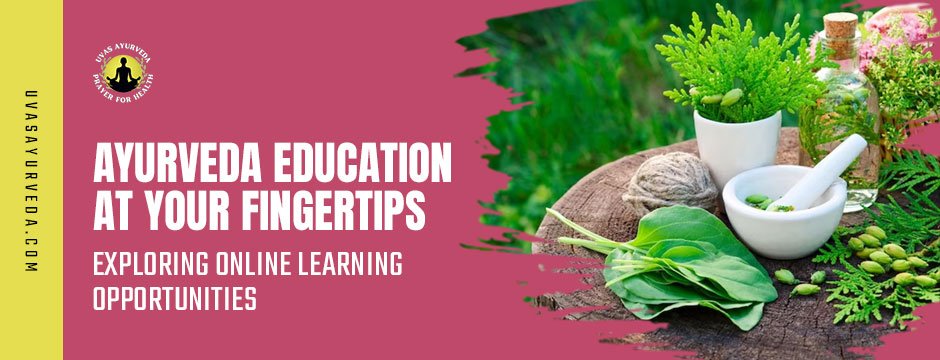
In the ever-evolving landscape of healthcare and wellness, the ancient practice of Ayurveda has found a new frontier – the digital realm. As the world becomes increasingly connected, the opportunities for accessing Ayurvedic education have expanded exponentially, allowing individuals across the globe to explore the depths of this holistic healing system from the comfort of their own homes.
The Rise of Online Ayurveda Education
Traditionally, Ayurvedic knowledge was passed down through generations, with students learning from experienced practitioners in an apprenticeship-style setting. However, the advent of the internet has revolutionized the way Ayurveda is being disseminated and learned. Online platforms have emerged as a powerful tool, enabling a broader reach and democratizing access to this ancient wisdom.
One of the key drivers behind the growth of online Ayurveda education is the increasing demand for alternative and integrative healthcare solutions. As more people seek to take control of their well-being, the appeal of Ayurveda’s personalized approach has grown significantly. Online courses and programs provide a convenient and flexible way for individuals to explore the principles of Ayurveda, learn about its various therapies, and even work towards professional certification.
Exploring the Online Ayurveda Education Landscape
The online Ayurveda education landscape is diverse and expansive, catering to a wide range of learners and their specific needs. From beginner-level introductory courses to comprehensive programs that delve deep into the complexities of Ayurvedic medicine, the options are plentiful.
Many reputable Ayurvedic institutions and practitioners have embraced the digital transformation, offering high-quality online programs that combine theoretical knowledge with practical applications. These courses often feature interactive lectures, video demonstrations, and access to experienced faculty members who are readily available to answer questions and provide guidance.
Beyond the traditional academic programs, there are also numerous free and low-cost online resources, such as webinars, workshops, and informative articles, that allow individuals to explore Ayurvedic principles at their own pace. These resources can be particularly valuable for those who are new to Ayurveda and want to dip their toes into the subject before committing to a more structured learning program.
The Benefits of Online Ayurveda Education
The shift towards online Ayurveda education has unlocked a multitude of benefits for learners around the world. Here are some of the key advantages:
- Accessibility: Online courses eliminate geographical barriers, allowing individuals from any location to access high-quality Ayurvedic education, regardless of their physical proximity to specialized institutions or practitioners.
- Flexibility: The self-paced nature of online learning enables students to balance their Ayurvedic studies with their personal and professional commitments, making it easier to fit learning into their busy schedules.
- Affordability: Online programs often come with more affordable tuition fees compared to traditional in-person programs, making Ayurvedic education more accessible to a broader audience.
- Personalized Learning: Many online Ayurveda platforms offer personalized learning experiences, with customized course content and mentorship opportunities to cater to the unique needs and interests of each student.
- Continuous Learning: Online resources and communities provide ongoing support and opportunities for continued learning and skill development, allowing students to keep pace with the latest advancements in the field of Ayurveda.
Many online Ayurvedic programs are designed to provide personalized learning experiences. Through interactive modules, personalized feedback, and one-on-one mentorship, students can delve deeper into the principles and practices that resonate most with their individual needs and preferences. This level of customization has helped to enhance the understanding and application of Ayurvedic concepts among learners.
Online platforms offer a vast array of Ayurvedic content, including video lectures, webinars, interactive simulations, and downloadable resources. This diverse range of materials caters to different learning styles and preferences, enabling students to explore Ayurveda from multiple perspectives and gain a more comprehensive understanding of the subject matter.

Online Ayurvedic education often involves interaction with experienced practitioners, researchers, and experts in the field. Through live Q&A sessions, virtual conferences, and online mentorship programs, students can gain valuable insights and guidance directly from the leading voices in the Ayurvedic community, further enriching their understanding of this ancient science.
When comparing the age-old methods of Ayurvedic education and the modern approach of online Ayurvedic education, there are both advantages and drawbacks to each approach.
The age-old methods of Ayurvedic education were deeply rooted in the traditional guru-shishya (teacher-student) relationship, where knowledge was passed down through generations within specific lineages. This allowed for the preservation and transmission of the authentic Ayurvedic teachings, ensuring the integrity of the practice.
The traditional approach emphasized practical, hands-on learning, where students would learn directly from experienced Ayurvedic practitioners. This allowed for a deeper understanding of the nuances and subtleties of Ayurvedic diagnosis, treatment, and patient care.
While online education can provide theoretical knowledge, it may lack the hands-on practical training and apprenticeship-style learning that is integral to the traditional Ayurvedic approach. There may be challenges in ensuring the authenticity and lineage-based transmission of Ayurvedic knowledge in the online environment, where the direct guru-shishya relationship is not always present.
The online learning experience may not be able to replicate the immersive and holistic learning environment that is often found in traditional Ayurvedic institutions or ashrams. Online education may face limitations in providing the same level of personalized mentorship and tailored learning experiences that are inherent in the traditional Ayurvedic education model.
The Future of Ayurveda Education: Blending Online and Offline Approaches
As the digital revolution continues to shape the educational landscape, the future of Ayurveda education is likely to involve a harmonious blend of online and offline learning experiences.
While online platforms will continue to play a crucial role in democratizing access to Ayurvedic knowledge, the value of in-person interactions and hands-on training cannot be overlooked. Many Ayurvedic institutions are exploring hybrid models, where online courses are complemented by periodic in-person workshops, retreats, and clinical immersions, allowing students to benefit from both the convenience of online learning and the richness of face-to-face interactions with practitioners and fellow learners.
Furthermore, the integration of cutting-edge technologies, such as virtual reality and augmented reality, could enhance the online Ayurvedic learning experience, providing more immersive and interactive environments for students to explore the nuances of this ancient healing system.
Globalization of Ayurveda through online courses has been a significant trend in recent years. Online Ayurvedic courses have attracted a diverse audience, including healthcare professionals, students, and individuals interested in alternative and integrative approaches to wellness. This diversity has enriched the learning experience and facilitated cross-cultural exchange of Ayurvedic knowledge.
Many online Ayurvedic course providers have recognized the need for multilingual and multicultural content, ensuring that Ayurvedic education is accessible to individuals from diverse linguistic and cultural backgrounds. This has further expanded the global reach of Ayurveda.
Conclusion
The rise of online Ayurveda education has opened a world of possibilities for individuals seeking to deepen their understanding and practice of this holistic approach to wellness. By leveraging the power of digital technologies, Ayurvedic knowledge is now more accessible than ever before, empowering a new generation of learners to embrace the transformative potential of this ancient science.
As the field of Ayurveda continues to evolve and adapt to the changing needs of modern society, the integration of online learning will play a crucial role in shaping the future of Ayurvedic education, ensuring that this rich tradition remains a vital part of the global healthcare landscape.
UVAS Ayurveda, a leading institution in the field of Ayurvedic education, has been at the forefront of promoting the globalization of this ancient system of medicine. This school of Ayurveda has recognized the importance of offering a comprehensive range of both online and offline courses, catering to the diverse needs of Ayurvedic practitioners, healthcare professionals, and individuals seeking to deepen their knowledge of Ayurveda.
By implementing this blended approach to Ayurvedic education years ago, UVAS Ayurveda has played a pivotal role in making Ayurvedic knowledge and practices more accessible to a global audience. The online courses have broken down geographical barriers, allowing individuals from across the world to access high-quality Ayurvedic education without the need for physical relocation or extensive travel.
The online platform has enabled UVAS Ayurveda to reach a wider and more diverse audience, attracting healthcare professionals, students, and individuals interested in integrative approaches to wellness. The university’s ability to offer multilingual and multicultural content has further expanded the global reach of Ayurvedic education, ensuring that it is accessible to learners from diverse linguistic and cultural backgrounds.
Complementing the online offerings, UVAS Ayurveda’s offline courses have provided opportunities for hands-on learning, personalized mentorship, and immersive experiences. This blended approach has enabled students to gain a well-rounded understanding of Ayurveda, combining the theoretical knowledge gained through online platforms with the practical, experiential learning that is integral to this traditional system of medicine.
Uvas Ayurveda offers online/offline/ residential courses on various subjects like:
- Woman Care (Stree)
- Pregnancy Care(Garbha Matha Sanskar)
- Nutrition, Diseases and Diet (Pathyapathya)
- Weight Management (Obesity)
- Ayurvedic Cosmetology (Soundarya)
- Ayurcharya for beginners ( Basics on Ayurveda)
The school’s commitment to excellence, its emphasis on preserving the traditional wisdom of Ayurveda, and its dedication to fostering skilled and compassionate practitioners make it one of the best schools of Ayurveda in the world.
In conclusion, UVAS Ayurveda is highly recognized as one of the best schools of Ayurveda due to its comprehensive education, dedicated faculty, emphasis on practical training, and commitment to preserving the traditional wisdom of Ayurveda. It continues to produce skilled professionals who play a vital role in promoting the health and well-being of individuals around the world.


Leave A Comment